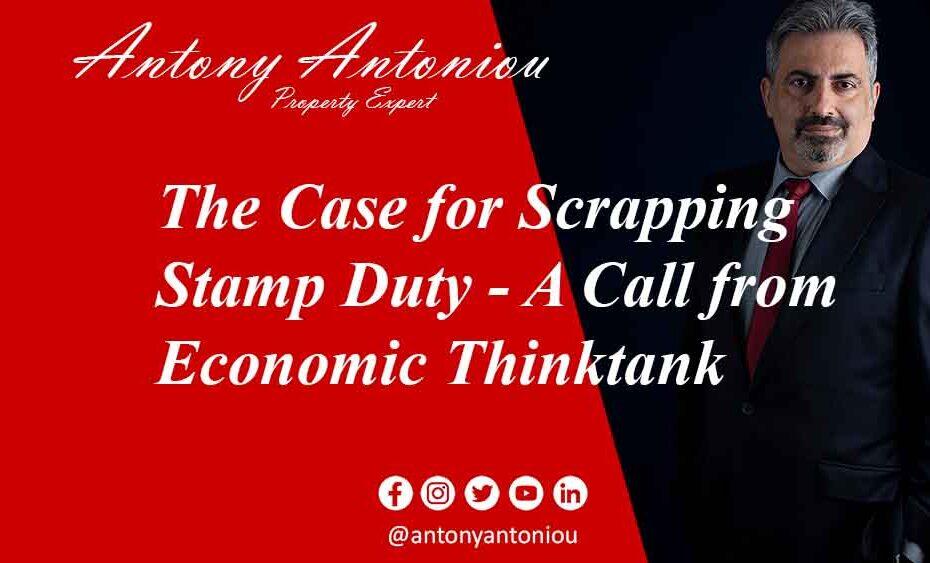The Case for Scrapping Stamp Duty – A Call from Economic Thinktank
Revisiting Stamp Duty Amidst Policy Discussions
As the political arena gears up for the upcoming party conference season and the looming General Election, a pivotal policy debate is once again taking center stage – the fate of Stamp Duty. Amidst this backdrop, the Institute for Fiscal Studies (IFS), a distinguished economic thinktank, has boldly reasserted its stance on the issue, sparking fresh discussions on the need for tax reform.
A Long-Standing Critique
The IFS, known for its persistent scrutiny of economic policies, has consistently raised concerns over the controversial property tax known as Stamp Duty. Recently, Helen Miller, the deputy director of the IFS, penned a thought-provoking blog post that accentuated the imperative of revisiting the current tax framework, with a particular focus on the challenges posed by housing charges.
Outdated Tax Systems and Burdensome Charges
Miller’s blog post underscored the outdated nature of the council tax system and the encumbrance of Stamp Duty. She voiced her conviction, stating, “The notion of imposing higher tax charges on frequently traded properties lacks a logical foundation. This practice not only disrupts the fluidity of the housing market but also presents a myriad of societal challenges. It hinders geographical mobility for employment opportunities, obstructs young families from upgrading their living arrangements, and even coerces older individuals to retain larger homes due to the exorbitant costs linked with relocating.”
The Impending Fiscal Challenges
However, Miller’s concerns extended beyond the immediate housing landscape. She articulated, “With the UK’s historical tax revenues remaining at elevated levels, we are confronted with mounting fiscal pressures. The aging demographic is poised to escalate expenditures on healthcare, social care, and state pensions. In the absence of substantial tax hikes or a remarkable surge in economic growth, the provision of public services and benefits confronts an inevitable dilemma – curtailment or degradation.”
Beyond Quantum: Rethinking Taxation Approach
Yet, Miller’s viewpoint transcended the mere quantum of tax revenue and its allocation. She advocated for a comprehensive recalibration of the entire taxation structure, with an emphasis on fairness and productivity. “Our tax framework should be strategically crafted to stimulate enhanced productivity and minimize adverse effects on economic progress,” she expounded.
The Power of Productivity in Shaping the Future
Miller further illuminated the paramount role of productivity in shaping the nation’s trajectory. She outlined how a more prosperous economy dramatically simplifies the attainment of diverse national goals, from addressing the aging population to achieving ambitious environmental targets. Drawing a curious analogy, she compared the negligence of this potential to taxing marshmallows, except if they were intended for the delightful act of roasting and consumption.
A Call to Action: Embarking on Tax Reform
In her concluding remarks, Miller’s blog post resonated with a resounding call for immediate tax reform. She urged policymakers to embrace this pivotal moment, stating, “Amidst the array of avenues for initiating tax reform, the essence of our economic productivity remains a linchpin. As we navigate decisions surrounding taxation and expenditure, the elevation of our productivity emerges as the cornerstone. Bolstering economic productivity not only facilitates the realization of critical national objectives but also lays the groundwork for a streamlined, efficient, and equitable tax system.”
The Road Ahead: Stamp Duty and Beyond
As discussions on the fate of Stamp Duty and broader tax reform gain momentum, the IFS’s resolute plea for change reverberates among advocates of a more effective and equitable fiscal landscape. The imminent party conferences and the ensuing General Election are poised to mark a decisive juncture, determining the course of the nation’s economic policies and its journey toward prosperity. The call to action has been sounded – the question now is whether policymakers will heed it.

